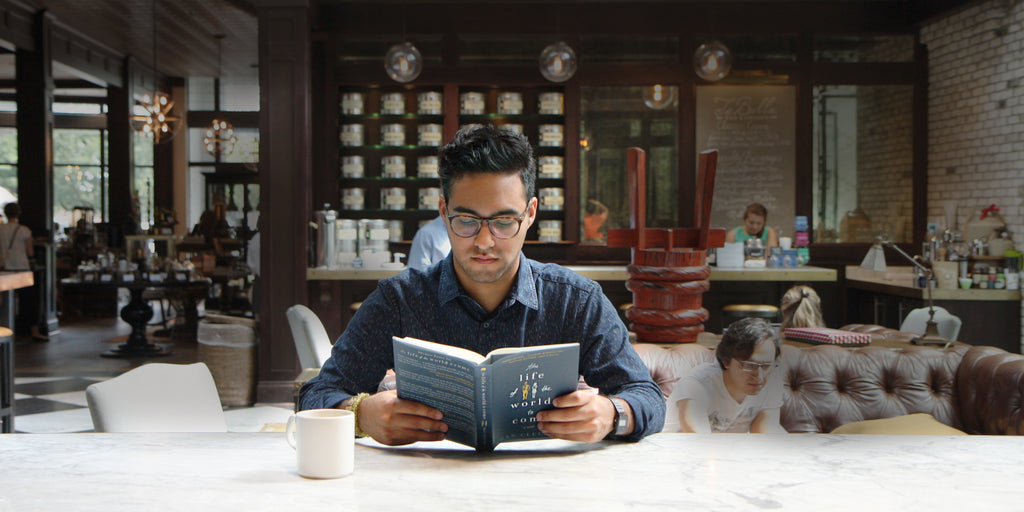
I want you to take a chance on a book. If we’re honest, almost every book we pick up is a risk. What if it’s no good? What if we waste all of our time reading it and are left unsatisfied? What if it’s “important” or “lyrical” but we hate it? Maybe it’s considered a great and important work — but what if we can’t even get into it? On the other hand, what if it’s amazingly good? What if we finish reading it and we can’t let the characters go? Or, what if it’s a fun, trashy read and we risk letting people know that we like fun, trashy reads? So many what ifs. Almost as many what ifs as books.
However, sometimes you can take a risk and it can pay off superbly. I don’t spend much time with new fiction; I like to wait a few years for the wheat and chaff to separate, for the cream to rise, for me not to waste time. But, I had time to kill. I promised I would pick up an advanced reader copy among the dozens in the Bookstore, and I had promised I would write a quick blurb. The book I finally (reluctantly) picked up was The Life of the World to Come, by Dan Cluchey.
The risks? Many. This is Cluchey’s first novel. For every first novel in a very successful career, or for every one-hit wonder, there are hundreds of books forgotten, many deservedly. Dan Cluchey was an adviser and writer for the Obama administration and worked on health care reform. Politics aside, how many hearts beat faster at the soaring rhetoric of a speech on health care? The cover is navy blue with depressing looking stick people. The story? Leo and Fiona fall in love and break up. Leo is a defending an inmate on death row who absolutely refuses to help his own case. This is the stuff dreams are made of, if you like dreams that have you leaking tears.
Early on, Leo tells us that, “I am not a sudden person, but something in her chased that all away”. Likewise, I am not a sudden person, but something in this book grabbed me and held on. Forget everything I’ve told you, every reason not to read this book. The writing is buoyant, at times almost luminous—and isn’t that a word overused in book reviews? Leo and his friends are just leaving school and entering the “real” world and the writing takes me back to the great conversations of college, when topics were weighty and friends were witty and possibilities seemed limitless. After, we follow Leo through his break-up, we follow Leo through his work with Michael, the death row inmate who may not be saved, and these walks are parallel. The tale isn’t linear; we jump through time a bit, and we hop from idea to idea. For the most part, this is deftly done. The story is gentle and some readers have suggested it doesn’t have much of a plot. I know what they mean, but this is a book about life, and life isn’t an action-adventure movie with explosions in every scene. In living, some moments are pivotal and some are just moments — but isn’t that where the real meat is?
As Leo worries about the world that is, the worlds that are to come, and the infinite possibilities of all the possible worlds, he finally learns to be in the present and to be content. My problem with so many modern novels is that people don’t often just live — life must be imbued with great meaning, great struggle, or great misery. To steal a line from Leo, “It isn’t what you wanted, but, you know, it’s actually even better, because it’s what’s here.” Life is what’s here, and sometimes it just has to be lived.
